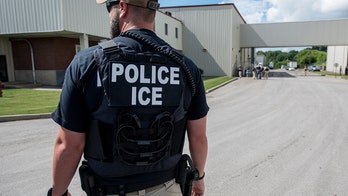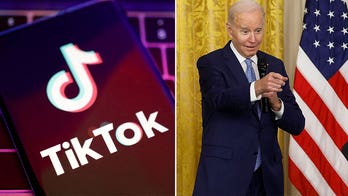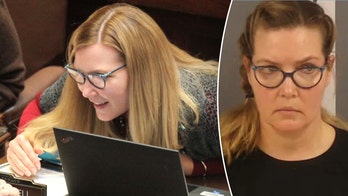In the seemingly never-ending race to exert more influence on the presidential cycle, Nevada is joining a growing list of states trying to move up the date of their presidential nominating contests.
A proposed bill in Nevada’s legislature would bump up its current caucuses from February to January -- and change the format to a primary. The bill also calls for all its other races to take place at the same time.
The goal is to get more voter participation, and draw more attention to the Silver State. Right now, New Hampshire and Iowa hog all the glory, with the first-in-the-nation primary and caucuses, respectively – South Carolina follows close behind with the first-in-the-South primary.
If Nevada were to schedule a primary for January, it could theoretically be first. Iowa’s caucus tentatively is scheduled for Feb. 1; New Hampshire’s primary tentatively is scheduled for Feb. 9. But efforts by other states to jump ahead of Iowa or New Hampshire face almost non-existent chances. Iowa state law says its caucus must be first in the country. New Hampshire law states the same for its primary.
“If they move ahead of Iowa, we just move ahead of them -- they can’t get ahead of us,” Iowa Republican Party spokesman Charlie Szold said.
Even if Nevada is not first in the country, however, switching to a primary would be significant for the state. A primary typically sees a greater turnout since it allows voters an entire day to cast their ballot in private, versus a caucus which typically is done in public and in a limited amount of time.
Nick Phillips, political director for the Republican Party in Clark County -- which is home to Las Vegas and nearly 75 percent of registered Nevada voters – told Fox News the Nevada caucuses see as little as 3 to 5 percent voter turnout, whereas a primary could attract as much as 25 percent.
“We want to know as a state which candidate is most likely to get elected,” said Phillips, touting what he described as the virtues of switching to a primary system.
But the proposed bill, sponsored by Assemblymen John Hambrick, R-Las Vegas, and Stephen Silberkraus, R-Henderson, is getting mixed feedback.
Jim Denton, a longtime Nevada political analyst, said it could benefit Republicans. He points out that in 1996, the GOP held a presidential preference vote by mail that resulted in one of the highest turnouts in Nevada history.
“It would be a smart move for the Republican Party, in my opinion, because it will energize voters and give the GOP the opportunity to mobilize those voters who participate for the general election,” Denton said in an email.
Democrats, however, say reducing the amount of time to campaign – by holding the contest earlier -- could hurt the party that lost numerous legislative seats in 2014.
“The problem with holding a caucus or nominating primary in early February is it doesn’t really give candidates time to get ready because you lose most of December,” said Fox News contributor and Democratic strategist Doug Schoen.
Both parties question if a January primary is an ideal date.
“January is not necessarily the most convenient time,” Phillips said. “It puts pressure on candidates to try to get their messaging out and talk to the public over the holidays.”
Critics also question if it's smart to interfere or try to compete with the historic and pivotal Iowa and New Hampshire contests.
“We don’t want to conflict with one of the other early states and land on their dates,” Phillips said.
Nevada is one of four states allowed to hold its presidential nominating contest before March 1. The others are Iowa, New Hampshire and South Carolina.
Other states currently trying to make their presidential primary date earlier include Arizona, Arkansas, Connecticut, Mississippi, Vermont and Wisconsin.
The Nevada bill’s chances of passing in a Republican-controlled Legislature in Nevada remain to be seen. Phillips said he thinks the bill will pass in some form.




